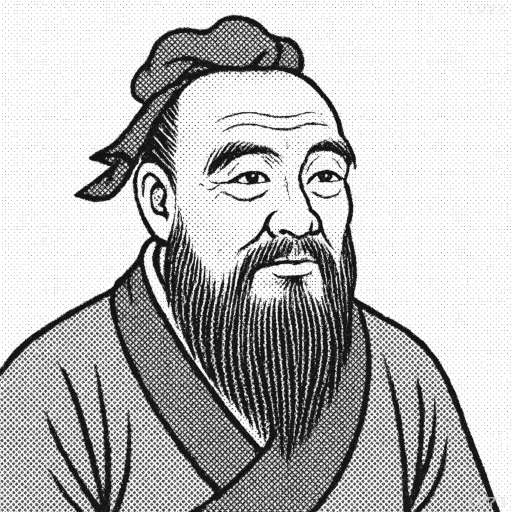“If you look into your own heart, and you find nothing wrong there, what is there to worry about? What is there to fear?”

- 551 BC – 479 BC
- Han ethnicity
- Philosopher, educator, politician
table of contents
Quote
“If you look into your own heart, and you find nothing wrong there, what is there to worry about? What is there to fear?”
Explanation
In this saying, Confucius emphasizes the power of a clear conscience as the foundation for inner peace. He suggests that if we examine our actions, thoughts, and intentions and find that they align with our moral values, we have no reason to worry or fear. For Confucius, integrity and self-honesty provide the strength to face challenges with confidence, as a life lived according to one’s principles is free from the burden of guilt or doubt.
This perspective is particularly relevant in a world where external pressures and judgments can often create anxiety. When we focus on living ethically and maintaining inner alignment, the opinions of others or fear of consequences lose their power over us. For example, in a professional setting, if a person conducts their work with honesty and responsibility, they can face scrutiny or challenges without fear, knowing they have acted with integrity. In personal relationships, a commitment to kindness and fairness removes the fear of misunderstandings or conflicts, as one’s actions are grounded in good intentions.
Confucius’s words encourage us to cultivate a life of authenticity and moral clarity. By focusing on our own values and acting with integrity, we achieve a sense of self-assurance and freedom from fear. This approach fosters resilience and empowers us to face life’s uncertainties with a calm and grounded mind, secure in the knowledge that we are true to ourselves.
Would you like to share your impressions or related stories about this quote in the comments section?




